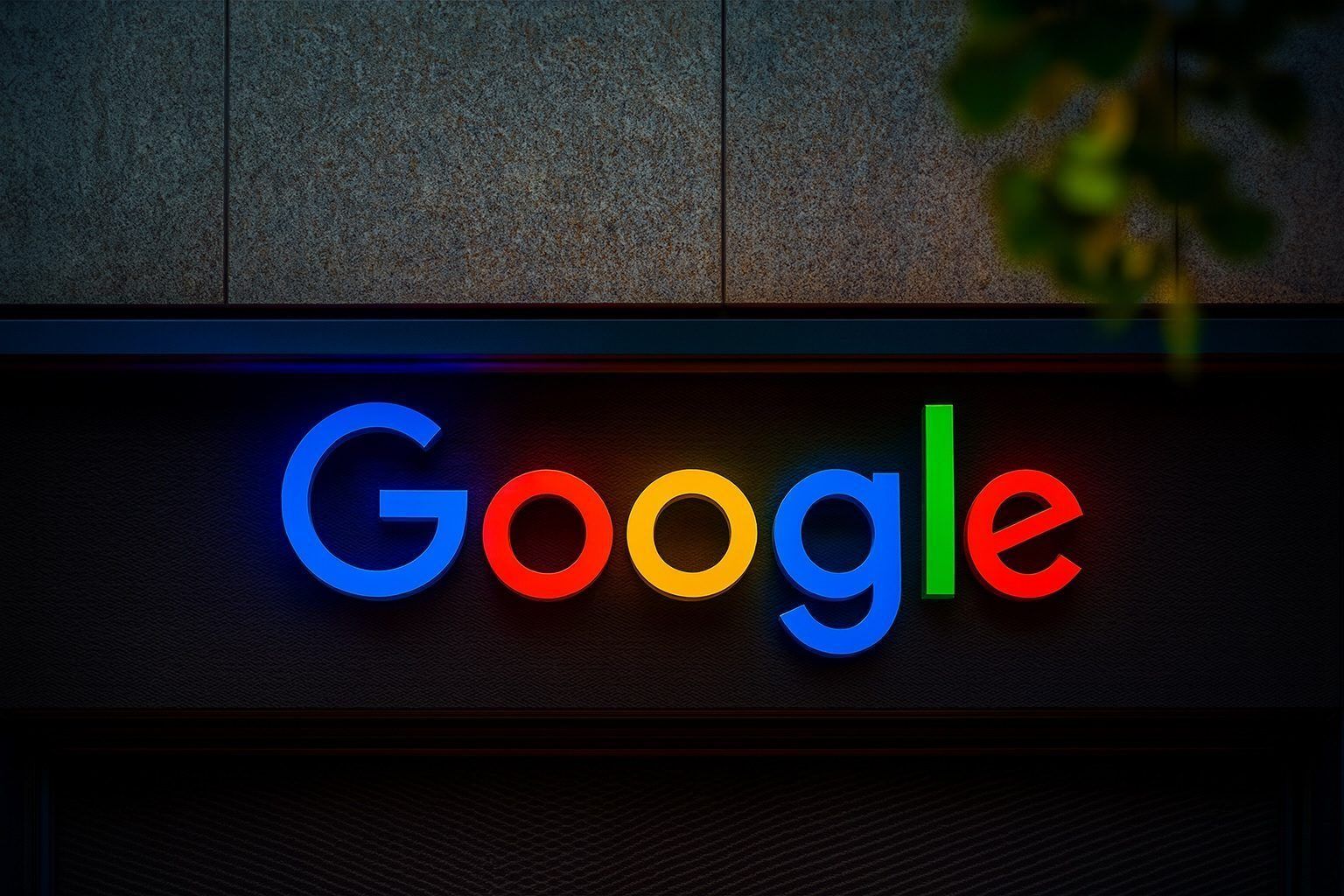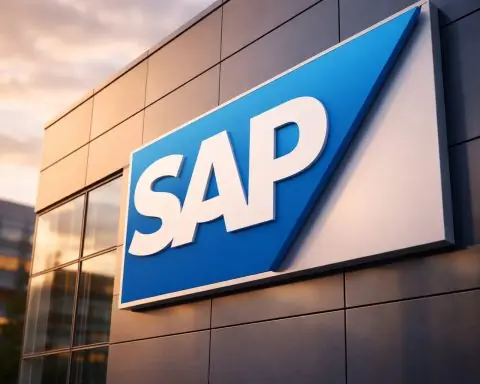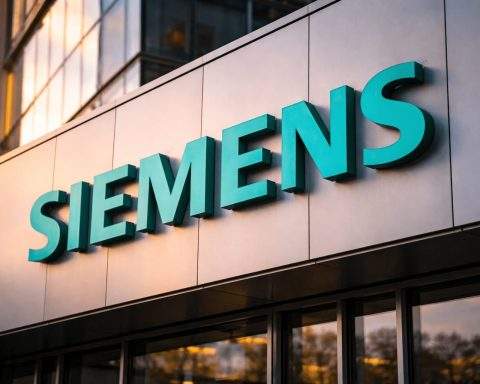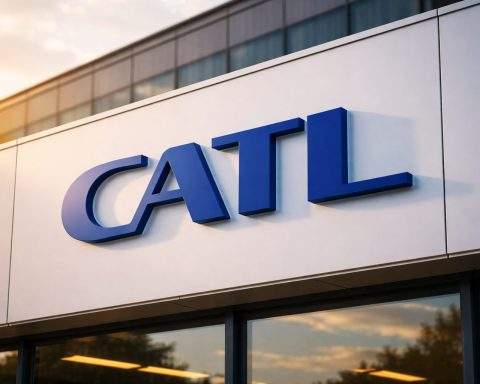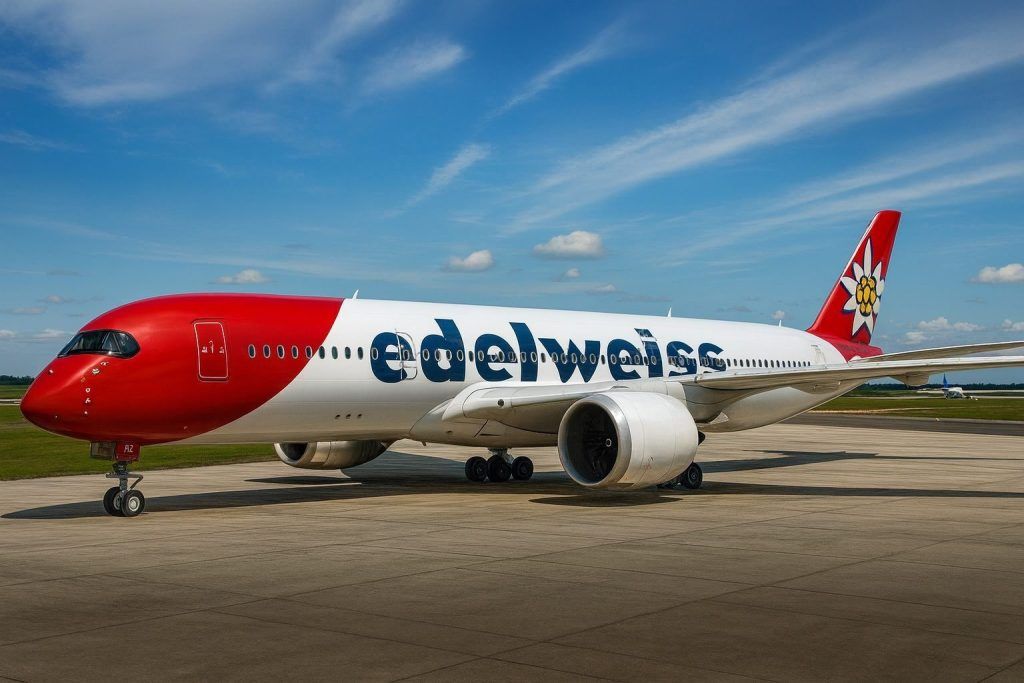Published: November 25, 2025
Alphabet is racing toward a historic $4 trillion market value, AI optimism is lighting up Wall Street, and one of the world’s most famous investors has quietly loaded up on two of the “Magnificent Seven” giants: Amazon and Google’s parent, Alphabet.
Fresh regulatory filings show billionaire George Soros’ fund has made major moves into Amazon (AMZN) and Alphabet (GOOGL), just as Alphabet’s share price surge threatens to reorder the rankings of the world’s most valuable companies. At the same time, a potential multi‑billion‑dollar AI chip deal between Google and Meta is challenging Nvidia’s dominance and adding fuel to Alphabet’s rally. 1
Below is a breakdown of what’s happening today, why these moves matter, and what investors should watch next.
Key Takeaways
- Alphabet is on pace to touch a $4 trillion valuation today, after its shares jumped roughly 4% in premarket trading, extending a year‑long AI‑driven rally. 2
- George Soros’ fund has built large stakes in Amazon and Alphabet, buying nearly 1.8 million Amazon shares and more than 630,000 Alphabet shares in Q3, signaling conviction in both companies’ AI strategies despite his long‑standing concerns about AI’s societal impact. 1
- Google’s AI push is going beyond software: Meta is in talks to spend billions on Google’s custom AI chips (TPUs), potentially redirecting a significant slice of demand away from Nvidia and helping Google compete in high‑end AI hardware. 3
- Alphabet’s rally is reshaping the global market‑cap leaderboard, putting it in close contention with Apple and Nvidia among the world’s largest companies by value. 4
- Big‑name investors are crowding into Alphabet, with Warren Buffett’s Berkshire Hathaway recently disclosing a new $4.3 billion stake in the company, adding further credibility to the AI bull case. 5
Soros Turns Toward AI Titans: Big Buys in Amazon and Alphabet
George Soros has been publicly wary of artificial intelligence, warning in past comments that advanced AI systems could strengthen authoritarian regimes and threaten open societies. Yet the latest portfolio update from Soros Fund Management shows something very different happening inside his investment shop.
According to TipRanks’ analysis of the fund’s Q3 filings, Soros Fund Management — which oversees roughly $28 billion in assets — has taken outsized positions in two AI‑heavy giants: Amazon and Alphabet. 1
A Huge New Amazon Position
In the third quarter, Soros’ fund:
- Bought about 1.84 million Amazon shares, bringing its total stake to just over 2.22 million shares.
- That position is currently valued at around $500 million, making Amazon one of the fund’s major holdings. 1
This is not a small tactical trade. It’s a deep commitment to one of the key platforms powering AI infrastructure worldwide: Amazon Web Services (AWS).
TipRanks’ breakdown highlights that AWS remains one of Amazon’s fastest‑growing segments, with sales rising around 20% year‑over‑year to roughly $33 billion in Q3 2025, driven in large part by demand for AI and machine‑learning services. 1
A Sharp Increase in Alphabet Exposure
Soros’ fund has also massively scaled up its position in Alphabet:
- It bought roughly 631,000 Class A GOOGL shares in Q3,
- Lifting the fund’s total Alphabet stake to about 658,000 shares, worth roughly $210 million at recent prices. 1
The timing is notable. When generative AI took off in late 2022, investors briefly questioned whether Google had fallen behind OpenAI and Microsoft. Now, as we’ll see below, Alphabet is staging a powerful comeback — and Soros’ team is leaning into that reversal.
Why Soros Likes Amazon: An AI Powerhouse Hiding in Plain Sight
Amazon might still be best known for e‑commerce and Prime delivery, but the heart of its AI story is AWS.
According to the TipRanks report:
- Amazon uses AI across its logistics network to forecast demand, optimize inventory, and route packages more efficiently.
- Alexa, Prime Video recommendations, and retail search all rely on machine‑learning models that constantly ingest Amazon’s vast consumer data.
- AWS sells a wide portfolio of AI and generative‑AI services to enterprises — from off‑the‑shelf models to tools that help companies build their own. 1
Needham analyst Laura Martin, cited in the same analysis, argues that Amazon’s massive consumer data sets give it a unique edge in training AI models and powering new products. She sees Amazon’s AI push, plus its advertising and cloud businesses, as shifting the company more toward higher‑margin enterprise revenue, which in her view comes with lower regulatory risk than consumer‑facing retail. 1
Martin rates Amazon a Buy with a $265 price target, implying mid‑teens upside over the next year, while Wall Street consensus sits even higher, with an average target near $295 and a “Strong Buy” rating based on dozens of bullish recommendations. 1
For Soros, then, Amazon is not just an online store — it’s an AI, data, and infrastructure company positioned at the center of enterprise digital transformation.
Alphabet’s AI Comeback: From ChatGPT Scare to Gemini 3
Alphabet’s story over the last two years has been a roller coaster. When ChatGPT exploded into public consciousness, many investors wondered whether Google’s search monopoly was under threat. That narrative is now flipping.
The TipRanks piece notes that Alphabet has re‑centered the entire company around AI, embedding models across:
- Search and advertising
- Maps and Android
- Productivity tools like Gmail, Docs, and Workspace
- Google Cloud, where enterprises can tap Google’s models and infrastructure for their own AI applications 1
Gemini 3: The New AI Flagship
Recent coverage highlights Gemini 3, Google’s latest flagship model, as a major catalyst:
- It offers improved reasoning, code generation, and multimodal understanding of text, images, and other inputs.
- Google is rolling it out directly into Search, the consumer Gemini app, and its developer stack, making it central to both consumer and enterprise products. 1
Independent benchmarks and investor commentary suggest Gemini 3 is performing strongly against rivals, helping dispel the idea that Google permanently ceded the AI lead.
Shyam Patil of Susquehanna, cited by TipRanks, remains bullish on Alphabet, pointing to four long‑term drivers: digital ad growth, cloud expansion, AI monetization, and increasingly shareholder‑friendly capital allocation. He rates Alphabet a Buy/Positive with a $350 price target, implying around 10% upside from already elevated levels, while the broader analyst consensus also sits in “Strong Buy” territory. 1
Alphabet on the Edge of $4 Trillion: How Today’s Rally Fits the Bigger Picture
Today’s premarket action is the latest chapter in Alphabet’s 2025 comeback story.
On Pace for a Historic Milestone
A fresh Reuters report this morning notes that Alphabet shares were up about 4% in premarket trading to around $331.70, putting the Google parent on track to hit a $4 trillion market valuation at the open. 2
That move follows a powerful year‑long rally:
- As of yesterday, Reuters and other outlets reported Alphabet’s market cap near $3.8 trillion after the stock climbed more than 5% in a single session to a record around $316.
- Alphabet’s share price is up roughly 70% year‑to‑date, far outpacing mega‑cap peers like Microsoft and Amazon. 6
Only a handful of companies — Nvidia, Apple and Microsoft — have ever touched the $4 trillion level before. Alphabet is now about to join, or at least brush, that ultra‑elite club.
Shaking Up the World’s Most Valuable Companies
Bloomberg’s story today puts Alphabet’s surge in global context: the rally is threatening to reshuffle the rankings of the world’s most valuable public companies as investors revalue Google’s AI prospects and its progress in competing with Nvidia’s best‑selling AI accelerators. 4
Real‑time market‑cap trackers show how tight the race has become:
- Nvidia sits at roughly $4.4 trillion
- Apple is around $4.1 trillion
- Alphabet is close behind near $3.8–$3.9 trillion, edging past or neck‑and‑neck with Microsoft in some rankings 7
In other words, Google’s parent is now firmly in the conversation for the top spot in global equity markets — something that would have sounded far‑fetched when investors were panicking about ChatGPT just two years ago.
The Meta–Google Chip Talks: A New Front in the AI Arms Race
If Soros and Buffett are betting on Alphabet’s AI software and cloud business, today’s chip headlines go a step deeper, into the hardware powering that software.
Meta Looks Beyond Nvidia
A Reuters report today says Meta Platforms is in talks to spend billions of dollars on Google’s in‑house tensor processing unit (TPU) chips, starting with its own data centers in 2027, and potentially renting TPUs via Google Cloud as early as next year. 3
The implications:
- Meta is currently one of Nvidia’s largest AI‑chip customers, with projected 2025 spending around $72 billion on hardware.
- If the TPU deal is finalized, Google could win a meaningful share of that budget, with Reuters’ sources suggesting Google’s cloud business could capture up to 10% of Nvidia’s annual revenue equivalent through such deals. 3
This would represent a major expansion of Google’s chip business, which until recently primarily served its own data centers.
Market Reaction: Alphabet Up, Nvidia Down
Markets are reacting in real time:
- Alphabet shares gained more than 3% on the chip news alone, building on their already strong run.
- Broadcom, which helps manufacture Google’s TPUs, also rose about 2%.
- Nvidia slid roughly 3% in early trading as investors weighed the risk of big customers diversifying away from its hardware. 3
Viewed alongside rave reviews of Gemini 3 and the march toward $4 trillion, today’s chip headlines reinforce the sense that Alphabet is emerging as a full‑stack AI powerhouse — from chips and cloud all the way up to consumer apps.
Buffett Joins the Party: Berkshire’s $4.3 Billion Alphabet Bet
Soros is not the only legendary investor warming up to Google.
Just over a week ago, Berkshire Hathaway disclosed a new $4.3 billion stake in Alphabet, picking up about 17.85 million shares in the third quarter, according to a securities filing and Reuters coverage. 5
Key points from that filing:
- The new Alphabet position instantly became one of Berkshire’s top U.S. holdings.
- Berkshire continued trimming its massive Apple stake, even as it added Google — a notable strategy shift for a conglomerate that historically treated Alphabet as a “too‑expensive tech stock.” 5
Buffett has long praised Google’s business model in his shareholder letters but avoided buying the stock, something he has later called a mistake. The new stake, arriving just as Alphabet’s AI story accelerates, is widely seen as an overdue endorsement.
Combine that with Soros’ Q3 purchases, and you get a picture of big‑money capital coalescing around Alphabet as one of the most compelling long‑term AI platforms.
Market Backdrop: Tech‑Led Rally, Then a Pause
Today’s moves are landing in a broader environment where AI stocks are once again driving market sentiment.
- On Monday, the Nasdaq jumped roughly 2.7%, its best session since May, as Alphabet and other tech names staged a powerful rebound. The S&P 500 also rose more than 1.5%. 8
- Overnight, U.S. index futures dipped slightly, with contracts tied to the Nasdaq, S&P 500, and Dow down just a few tenths of a percent, as traders took profits and waited for fresh economic data. 8
- Markets are still pricing in a high probability of another Federal Reserve rate cut in December, which tends to support high‑growth tech stocks, even as some Fed officials warn about inflation risks. 9
At the same time, there’s ongoing chatter about whether AI stocks are in bubble territory. TipRanks’ market wrap points out that despite recent rebounds, the major U.S. indices are still on track to finish November in the red, largely because of earlier AI‑driven sell‑offs and profit‑taking. 8
So today’s Alphabet fireworks are happening against a backdrop of both excitement and caution.
What It All Means for Investors
Not investment advice. This article is for informational and educational purposes only.
A few themes stand out from today’s developments:
1. Alphabet Has Become a Core AI Platform, Not Just an Ad Business
Between Gemini 3’s rollout, the Meta chip talks, and powerful cloud momentum, Alphabet now spans the entire AI stack — chips, infrastructure, models, and consumer products. That’s a rare combination, and it’s the backbone of the current re‑rating in the stock.
2. Smart Money Is Crowding Into the Same Names
When both Soros Fund Management and Berkshire Hathaway independently arrive at the same conclusion — that Alphabet belongs near the top of their portfolios — other investors notice. Their moves don’t guarantee returns, but they do underscore how central Google has become to the AI theme. 1
Amazon, too, is being treated less like an online retailer and more like a diversified infrastructure and data giant whose value is deeply intertwined with AI.
3. The AI Chip Race Is No Longer a One‑Horse Show
Nvidia still dominates AI accelerators, and it recently made headlines by hitting a $5 trillion valuation, a first in corporate history. Reuters But the Meta–Google TPU talks show that customers are actively exploring alternatives, especially when those alternatives come bundled with world‑class cloud platforms.
That dynamic matters for both chipmakers and cloud providers — and may gradually spread AI economics beyond Nvidia.
4. Valuation Risk Is Real
A $4 trillion valuation implies a lot of future growth, and even bullish analysts acknowledge that expectations for Alphabet and its peers are sky‑high. Regulatory risk, rising AI infrastructure costs, and potential macro shocks all remain key watchpoints.
For long‑term investors, the central question isn’t just “Is Alphabet a winner?” — it’s “How much of that winning is already in the price?”
Bottom Line
On November 25, 2025, the AI story in markets is crystallizing around a handful of mega‑caps:
- Alphabet is edging toward the $4 trillion milestone and threatening to climb to the top of the global market‑cap table.
- Amazon remains a foundational player in AI infrastructure.
- Nvidia, while still the chip king, is facing credible challengers as Google pushes its own hardware.
- Heavyweights like George Soros and Warren Buffett are betting that this AI supercycle still has a long runway.
Whether you view AI as a transformative platform or as a potential bubble, today’s news makes one thing clear: the battle for AI leadership is no longer just about cool demos — it’s about trillions of dollars in market value, strategic chip alliances, and the capital allocation decisions of the world’s most influential investors.
